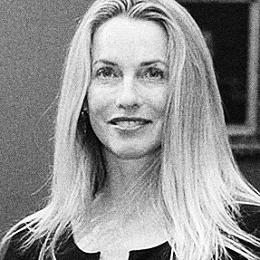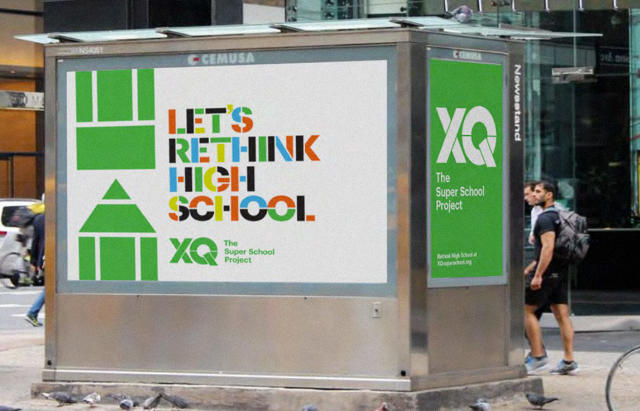“I can’t change anything on my own,” she tells Fast Company. Tim Cook, Snoop Dogg, and others are on board. Now she wants you, too.
On one side of the New York Public Library’s Edna Barnes Salomon Room, standing under a 19th-century portrait of one of the many old white men who have run the institution, Laurene Powell Jobs is chatting with MC Hammer.

It’s Tuesday night of this week, and they are here for the launch of the Super School Project, which aims to do nothing less than reimagine the American high school. The $50-million effort is the brainchild of Powell Jobs’s philanthropic nonprofit, the Palo Alto-based Emerson Collective.
Powell Jobs does everything she can to push the focus elsewhere—at one point she passes microphones to different speakers in the crowd, which is packed with stars of the education reform movement, like Teach for America’s Wendy Kopp, former New York City schools chancellor Joel Klein, and Cami Anderson, the Newark, New Jersey school chief who was responsible for administering Mark Zuckerberg’s $100 million donation. The evening’s speakers are Russlynn Ali, a former Obama administration official who now works for Emerson, and Geoffrey Canada, the Harlem school reformer.
The Super School Project aims to reach beyond this elite crowd, by asking Americans from a range of backgrounds to form teams to brainstorm a concept for the perfect U.S. high school. The XQ Institute, the Emerson offshoot created to run Super School, provides each team with materials for its work. All ideas are submitted online, and five of the projects will be funded with $50 million put up by XQ. More importantly, Powell Jobs hopes, the act of provoking such a broad spectrum of fresh thinking on high schools will lead to a national debate about what high school should be now that our economy is no longer based on the kind of industrial factories that were fed so well for years by high school graduates. In an information-based, computing-based economy, what is the purpose of high school?
On that question, Powell Jobs wants to make one thing really clear: “I don’t know the answer,” she emphasizes in a phone interview the day after the library event. “I can’t change anything on my own. This whole project is designed around communities, teams of people in local communities.” To get things rolling, she’s on an extended road trip: Between now and November 4, XQ will meet with leaders in Washington, D.C., Boston, New Orleans, Chicago, Los Angeles, Oakland, and Jackson, Miss.
Powell Jobs has been working to bring great high school educations to disadvantaged local communities for nearly two decades now. In 1997, she started College Track, which has now served more than 2,000 low-income, diverse kids by offering them close mentorship, financial aid, and leadership training. This remarkable but low-key grass-roots program helped inspire the Super School Project, which is as national as College Track is local. “I’ve listened to hundreds and hundreds of students. They are so clear about their hopes and dreams, and also that their education is not going to be what they need it to be.”

Super School is an effort to address this collective worry, not by prescribing a solution but by encouraging innovation from students, teachers, techies, and anyone who might have a good idea. Media Arts Lab/ For Good, a TWBA unit created a design for XQ’s materials that is engaging, fresh, and deeply unlike any of the drab, dense stuff typically associated with scholarly pursuits. The bold design is intended to inspire bold ideas. If you want to redesign public high school for a modern world, you may have to abandon all kinds of traditional beliefs. Here’s a sampling of the ideas thrown out during a brief brainstorm at Tuesday’s New York Public Library event:
- Why should time, rather than mastery of skills, be the defining unit of high schools?
- Should we devise a curriculum that teaches kids the essence of “peace”?
- Should no student be allowed to graduate without mastery of computer programming?
- Isn’t learning “debate” the key to success in a more interdependent future?
It remains to be seen, of course, whether Powell Jobs and XQ can push Super School past this group and into a national debate that leads to the kind of “leapfrog” solution she believes is necessary to ensure that all young Americans have access to great high schools. Powell Jobs has an extensive network, enormous resources, and the ability to elicit interest from Silicon Valley to Capitol Hill and Hollywood: besides Apple CEO Tim Cook and MC Hammer, Snoop Dogg, will.i.am, and New York governor Andrew Cuomo have shown support. And XQ’s CEO is Russlynn Ali, the former assistant secretary of civil rights in Duncan’s Department of Education, adding to XQ’s potential pull in D.C.

But the problems they want to tackle in a brand-new way are big and can seem intractable, and past school reformers have often come across as arrogant and prescriptive, alienating teachers, principals, and others within the system they want to reform. Powell Jobs thinks those reformers have gotten a bad rap.
“They’re portrayed that way because this is a sensitive, complex subject,” she says. “No one from the outside thinks they have the answers. I don’t think anyone comes into this in an egomaniacal way. If you’re an egomaniac, there are plenty of other ways to satisfy yourself other than public education.”
[Apple On The Desk: Mervas via Shutterstock]
Fast Company , Read Full Story
(87)